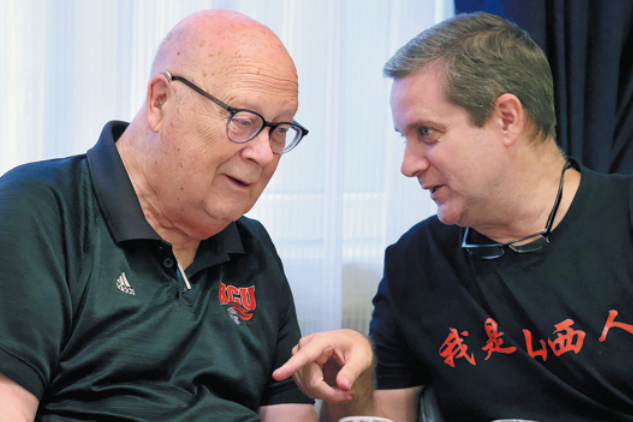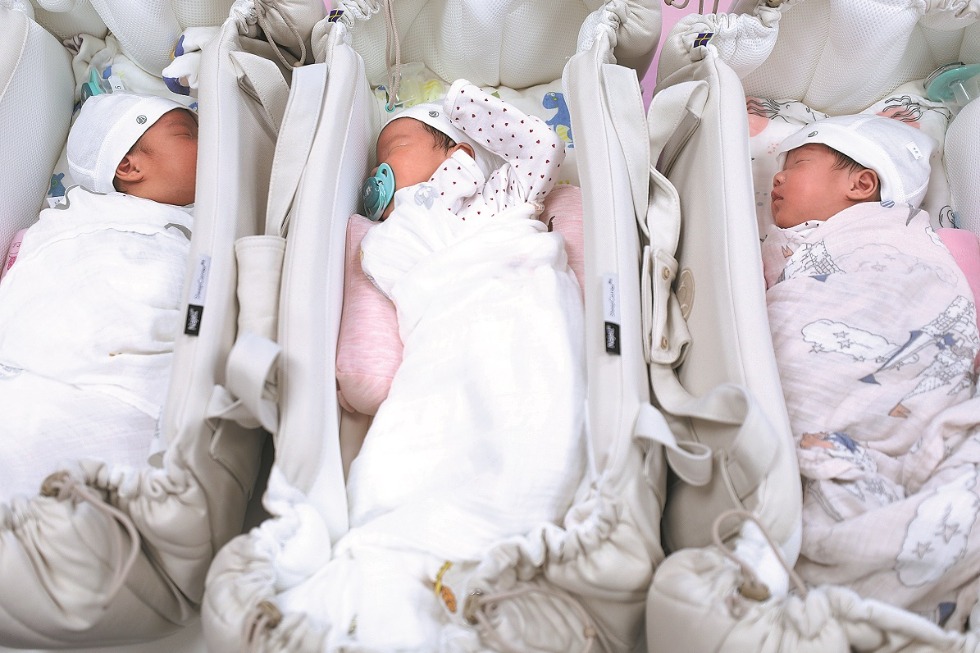Key questions
By Fang Aiqing | China Daily | Updated: 2018-12-19 07:00

Hunting for teachers
At the concert Sheng organized, 20-year-old Yang Miaohui from Heilongjiang province's Mudanjiang not only played piano but also sang with a chorus of visually-impaired children from the Beijing School for the Blind.
Wang Jianguo, who marveled at Yang's vocals and poetry recitations, has taught her piano for free since 2007, but Yang taught herself to sing.
She passed Level 10-the highest level-of the national piano examination organized by the Chinese Musicians' Association, ranking first among the students who took the test with her. The examiner didn't notice Yang's visual impairment until after she'd completed it.
Short videos of her playing Croatian Rhapsody with a double-keyboard electronic organ, of her singing and playing pop music such as Scarborough Fair, and various classics, especially lots of Chopin, are making the rounds online.
She also learned xiao (a Chinese vertical bamboo flute), the harmonica and the ocarina.
Yang stands out in that she improvises in addition to reciting classical works.
She recently accompanied a violin performance on the piano.
Yang's sensitivity to sound impresses Wang. He recalls Yang once guided him to tune an instrument for a violinist backstage. Wang compared the tuning to a smartphone app and found it was perfectly accurate.
Many visually-impaired people, particularly students, in China are learning piano.
Ru Tianzi, music teacher at the Beijing School for the Blind, says every class at the school has kids learning the instrument, and both Sheng and Wang say they've seen similar situations around the country.
However, it's a struggle for people with visual impairments to find appropriate teachers.
Wang encountered Yang at a performance organized by a local school for people with visual impairments that Wang attended to meet a friend.
Kang took Liu everywhere she could to learn the electric keyboard in their hometown, Chifeng, in the Inner Mongolia autonomous region, but over 40 music teachers turned them down.
Then, Liu Yongxue, Liu Hao's first teacher, promised to try for free since the family couldn't afford the fees. He soon won a national contest and expressed his wish to play piano.
Liu Yongxue didn't understand music scores for the blind and thought that would be a problem when teaching Liu Hao, so, the mother and son traveled to Beijing.
They embarked on another needle-in-a-haystack search for a willing piano teacher.
They went through several teachers before they met Sheng through the Beijing Apple Charity Foundation, which has covered Liu Hao's living expenses in Beijing for a dozen years.
Score struggles
Liu Yongxue was right. Reading music is a major challenge for people with impaired sight.
For her son's sake, Kang learned both notation and the scores for the blind.
She took care of Liu Hao during the day and translated sheet music into the notation for the blind, sometimes staying up all night.
But, Liu Hao soon started learning faster than she could translate, so, they tried a new method.
Liu listens to demonstrations, and recognizes and recites most of the notes. Kang then helps him correct mistakes and improve details.
Yang can't read music at all.
























